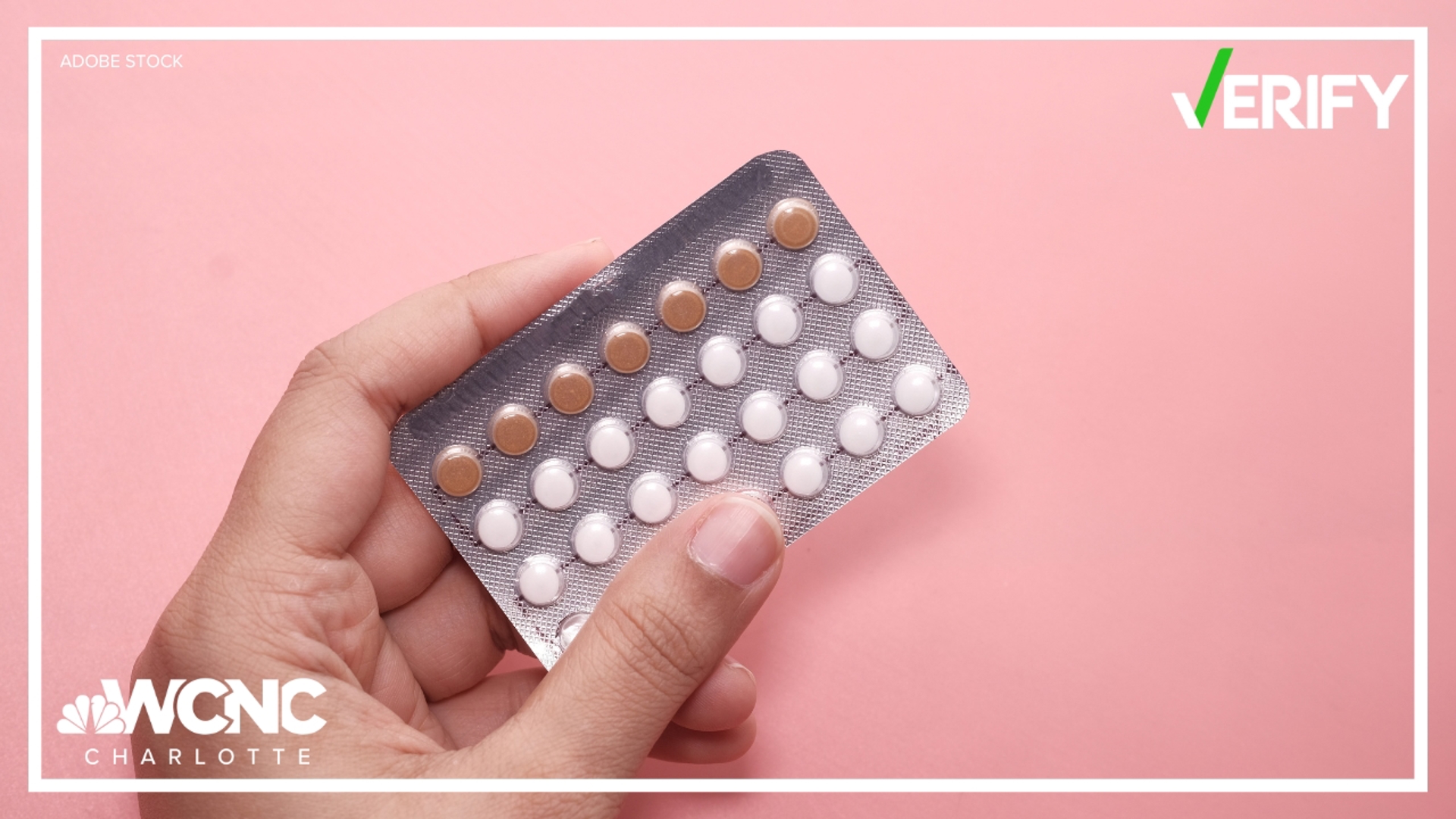CHARLOTTE, N.C. — A growing number of people are concerned that taking birth control pills could have ripple effects if they later want children.
WCNC Charlotte's VERIFY team looked at a lot of studies and data for this. In one study published in the National Library of Medicine, out of more than 2,000 community college students, 69% are worried contraception could affect their future fertility.
There has been similar rhetoric on social media.
OUR SOURCES:
WHAT WE FOUND:
"There is no evidence to show that it would," Salib said.
While Salib said there is no evidence to support that worry, WCNC Charlotte went through several studies, clicking through medical journals dating back decades.
A study published in the National Library of Medicine examined 22 studies that enrolled more than 14,000 women. Around 83% of those women who stopped birth control were pregnant within the first 12 months.
"I actually would tell patients to some degree the opposite may be true because for people who have been on birth control for a long period of time the way that it works, it prevents ovulation and they may have a higher number of eggs at the end of her time by the time she gets off the birth control versus if she didn't have any birth control," Salib said.
An Oxford Academic study also examined more than 8,000 pregnant women who had been taking birth control and stopped the pill.
- 74% of those women conceived in less than six months.
- 14% conceived in six months to 12 months.
- 12% were pregnant after a year.
However, Salib does point out the biological clock plays a role here. He said on contraceptives or off them, it is more difficult for women to conceive after they turn 35.
"Women who try to stop their birth control pill in their late 30s trying to start their family may have issues because they are in their late 30s and unfortunately, as you age your risk for infertility does increase to some degree," Salib said.
Each form of birth control will affect women's bodies in different ways. It's best to talk to your doctor to see which is right for you.
Contact Meghan Bragg at mbragg@wcnc.com and follow her on Facebook, X and Instagram.
WCNC Charlotte's Verify series is all about trying to make a difference in the Carolinas by making sure the community has the correct information. WCNC Charlotte outlines concisely what we know and what we don't know. Sometimes the answer can be surprising. Watch previous stories where we verify social media claims in the YouTube playlist below and subscribe to get updated when new videos are uploaded.

